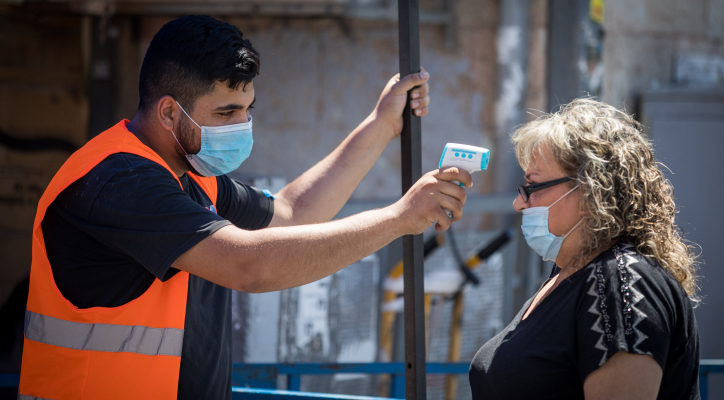Israel is building new staged reopening model based on the successful best practices that other countries are using to deal with the pandemic.
By Paul Shindman, World Israel News
Israel’s new coronavirus czar is working on a new “staged method” for controlling the spread of the infection by building on the successful models that other countries are using, Israel Hayom reported Monday.
America, Europe and Asia are all handling the lockdowns and re-openings through different methods. Chief coronavirus strategist Prof. Ronni Gamzu has tasked his deputy, Prof. Itamar Grotto, with preparing a pandemic warning scale similar to models elsewhere in the world but customized for Israel to take into account the education, economy, culinary and other aspects of the economy.
Israel’s government has come under criticism from consumers and businesses faced with the chaos of constantly changing rules and arguments by politicians for and against each change. The new guidelines will be set by a team of experts so that moving from stage to stage will also show the expected benefits or effects on both public health and the economy for each move, the report said.
“Professor Roni Gamzu appointed a good committee. They are all doctors and specialists. So I prefer to listen to them,” tweeted radio talk show host Boaz Cohen. His thoughts were echoed by Kan Radio reporter Keren Neubach, who said she hoped Gamzu would succeed to “improve, even slightly, the decision-making process of the Israeli government.”
The clock is ticking because the current government-imposed restrictions will expire in two weeks and the Ministry of Health must bring a new model to the Knesset for approval. The aim is to prepare a multi-stage plan of relief and restrictions, with the transition between each stage depending on morbidity indices – not only the number of new diagnoses, but also the number of patients in serious condition and the number of hospital beds in use.
The government received a recommendation to adopt a rating method used in many countries around the world to manage the transition to a new “normal corona routine.”
Using the warning levels method, the government would be able to impose or relax restrictions on different areas of the country depending on the local infection level. Everybody would then be on the same page and know exactly what the restrictions are.
One example being looked at is New York state and its four-phased staged economic reopening plan, which to date appears to have proven successful. During a severe period with a high rate of infection, only essential services are allowed to open. As the morbidity rate drops, the economy opens back up in well-publicized stages ranging from phase 1 with manufacturing and construction coupled with pickup-only retail, through to phase 4 under which schools, arts, recreation and entertainment open up, but with social distancing and hygiene still being practiced.
The ranking methods vary from country to country. In Germany, for example, the grading system works by defining a red line for infections above which areas are defined as “red” (danger) areas, with the red line determined by the number of new coronavirus patients per 100,000 people.
In France, the staged method was divided into traffic light colors: red, yellow and green. The phases are set by the number of new patients per 100,000 people, plus taking into account changes in infection rate and the load on hospital beds, especially intensive care beds.
In the U.S. individual states set their own guidelines, with some using only three stages, but still taking into account the number of patients and sometimes the number of dead and hospitalized per day.
With a phased plan for setting both closures and openings, the government is hoping it will be able to pre-determine a program to support sectors whose activities may be severely affected, especially over long periods of time, like the hard-hit sectors of tourism, leisure and culture, the restaurant industry and education.





